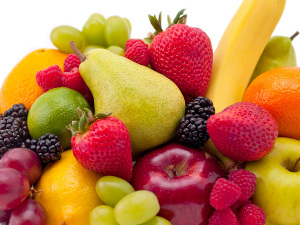U.S.: Valley Fruit adapts to security concerns in importer transition

U.S.-based Valley Fruit & Produce Co. has taken a new approach to its business in the last six months to become a new importer for the U.S. produce market. This process has opened the company's eyes to how a country’s lack of infrastructure and inequality in certain regions, particularly in Central America and Latin America, can create serious security concerns for the international commerce of fresh produce.
Valley's international supply chain manager Jorge Alvarado spoke to www.freshfruitportal.com about the challenge of insecurity his company has experienced when meeting with growers abroad.
"Sometimes the lack of a strong logistical infrastructure in a region means scheduling the inland and ocean freight gets very complicated and takes additional work to arrange." Alvarado said.
"Add to these challenges, that many of these regions also have inequality in income, education, and skills and we find that we also have to deal with public insecurity and drug trafficking concerns.
"These are just not issues we have to factor in when we are making domestic deals."
He said Valley always made sure it was purchasing from sophisticated operations that also met food safety requirements and could provide third party certification.
"But these operations are often in environments that can be unpredictable and dangerous so it just adds another dimension for us to consider when choosing our partners and traveling in these countries.
"An example of how these external conditions can affect our shipments happened recently. Because of recent drug busts involving cocaine found in shipments of pineapple from Costa Rica, we often have containers of pineapples delayed for inspections at local ports.
"Over the holiday period we had a container of pineapples delayed at the port for an additional three days. While all of our product was released and none of our shipments have ever been tagged, these delays happen and are costly to our operations."
He said all these delays were a result of inequality and insecurity within these exporting regions.
Despite security concerns, Valley Fruit & Produce makes sure staff travel to each and every farm they purchase produce from internationally. The company currently works with farmers from Costa Rica, Brazil, Peru, Ecuador, Honduras, Guatemala, Colombia, Panama, Mexico and recently added South Korea and Chile to the list.
Pineapples, mangoes and melons are some of the company's most sought-after products.
"We put our boots on the ground, checking for all the GlobalG.A.P. certifications, label rights, and how they treat the employees," Alvarado said.
"I have actually taken classes to become a PrimusLabs auditor in order to gain more knowledge on GAPs and I personally check farms, check the fields, and ensure they comply with all the safety regulations and with what is involved in running a farm.
"There are so many attributes that we have to [make sure we] come out with the right companies – shipping and logistics partners – so we know they are technically perfect. So we know that when we put our money in these different countries, that a load, the moment it leaves the farm, is ours, and it is going to make it to the port."
The company entered the produce industry in 1920, but was a non-importer for 95 years.
Photo: www.shutterstock.com












































